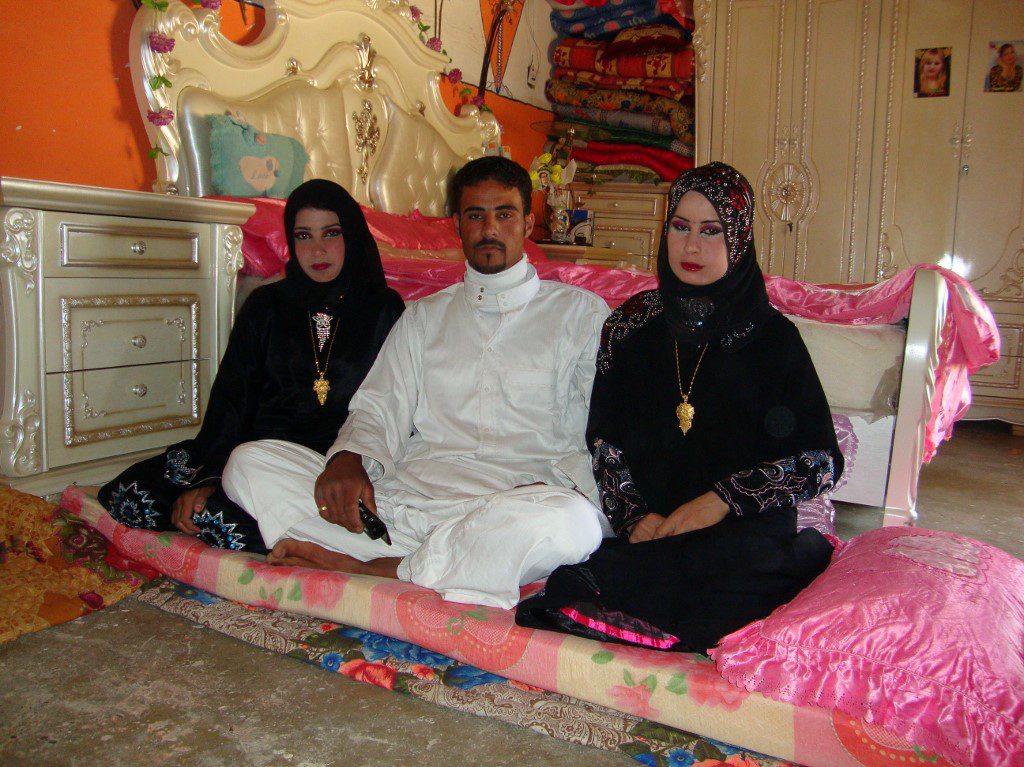
Nour Abbas
Jordanian student Mamdouh Barakat Abu Tayeh confused social media after a picture of him with the title of his master thesis: The level of happiness among polygamists and monogamists in Ma’an Governorate. Some attacked or endorsed the research without actually looking at its results. Many did not notice the most notable result of the study; the lack of evidence indicating that the polygamists enjoy a higher level of happiness. More than that, the level of stability balance tends, according to the study, to those with one wife.
Abu Tayeh’s study was not the first of its kind, as researchers in the field of family counselling have long been concerned with the issue of polygamy. People have constantly misstated the results of the studies that dealt with such an issue. Who among us has not encountered a title such as the following: A British study confirms that polygamy extends the life of men by 12%? That study goes back to researchers at the University of Sheffield in Britain. The study sample included men from 190 countries over the age of 60.
Based on the data of the World Health Organisation, the results showed that the polygamists had lived 12% more than monogamists. However, this same study neglected differences like food quality, physical level, or genetic diseases in the same sample. Also, it did not consider the impact of the environment on the average life expectancy in the countries included in the study, which the researchers themselves mentioned in the study.
The reason for the increase in the average age may not be due to polygamy. In the end, the researchers recommended conducting the same study on women, fearing rates of lower life expectancy for those who are married to polygamists, which is precisely what the Arabic articles overlooked.
In contrast, a 2014 study conducted at King Faisal Specialist Hospital and Research Centre in Jeddah, Saudi Arabia, showed that men who had multiple wives were four times more likely to have heart problems than monogamous men. This study included a sample that consisted of 687 men in Saudi Arabia and the UAE who had no pathological genes.
The reader may wonder why there are scientific researches on a purely religious issue. However, polygamy is a family, social and religious matter alike. For this, social or psychological researchers often seek to study its manifestations, consequences, and causes. Unfortunately, most Arab research relies on a sample of men or children. Only four studies addressed women under polygamy. Studies have often highlighted polygamy as a negative thing for men and children within families, contrary to what is reported by Arab media.
Scientific research cannot be partial. It cannot be generalized except only under certain conditions. Every scientific research that falls within a society has at least three limits: temporal, spatial, and human. The results apply only to the limits and generalizations of the study. For example, a study conducted on students in India is not the same as a one done on students in Iraq. Many writers fail to consider this when citing studies with samples that do not suit their article.
People on Twitter shared the study title as a hashtag in their tweets. However, they forgot that the study -which claims that there is no difference in the happiness level between polygamists and monogamists- was conducted in Ma’an, Jordan, which has a percentage of polygamists more than 70%, according to the researcher. And if we change the human limit of the study for a society with fewer polygamists, the results may change completely.
Presenting partial results from polygamy studies could be considered an unintended misrepresentation of the facts and outcomes reached by these studies to encourage polygamy in societies that are in dire need today to establish healthy families, and this may be more difficult with the presence of polygamy.
DISCLAIMER
The opinions expressed in this publication are those of our bloggers. They do not purport to reflect the opinions or views of Fanack or its Board of Editors.


